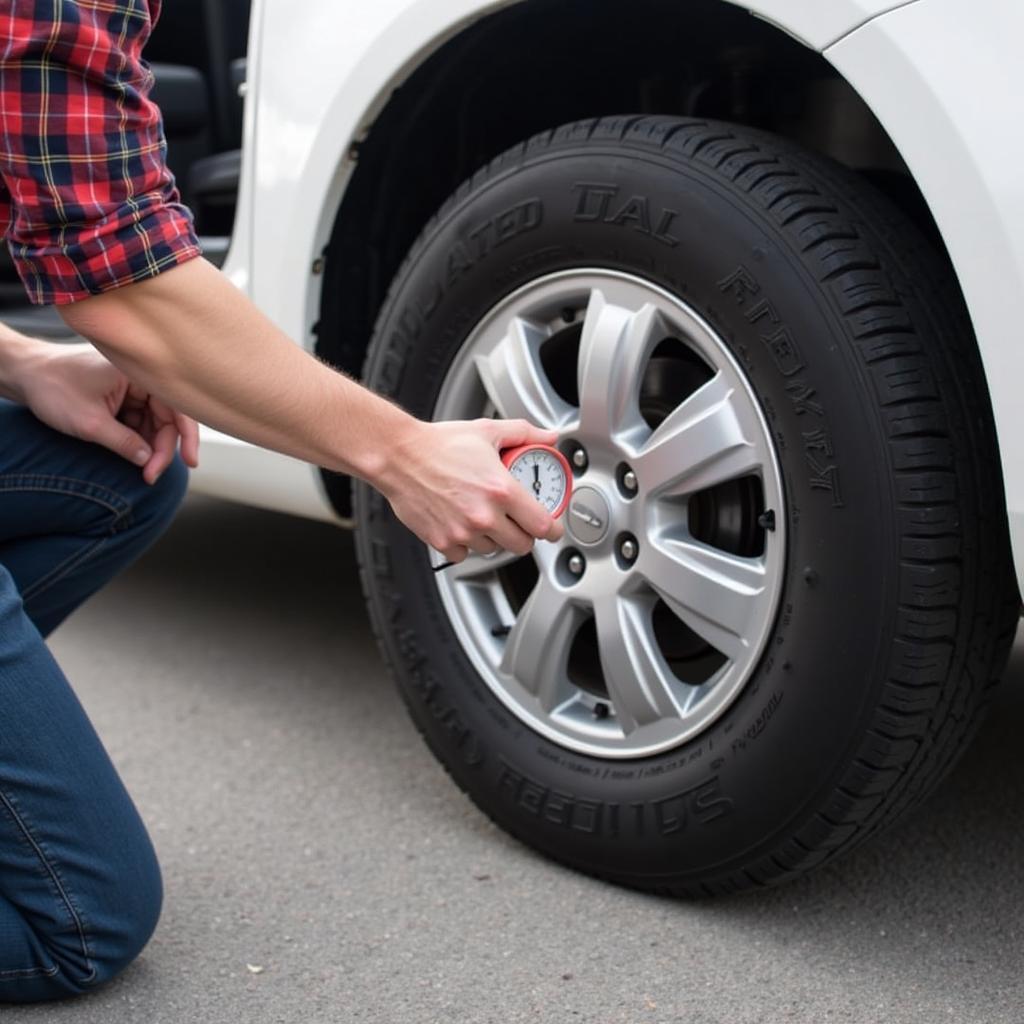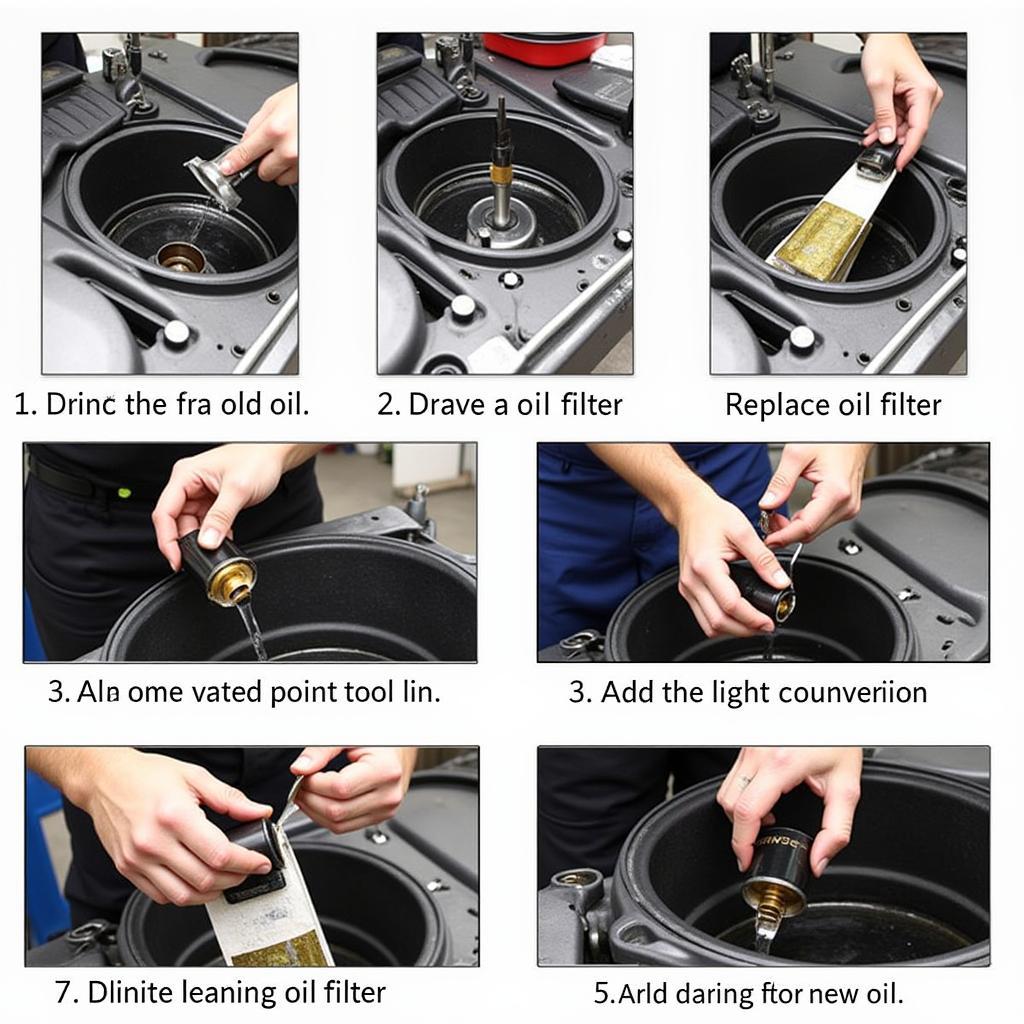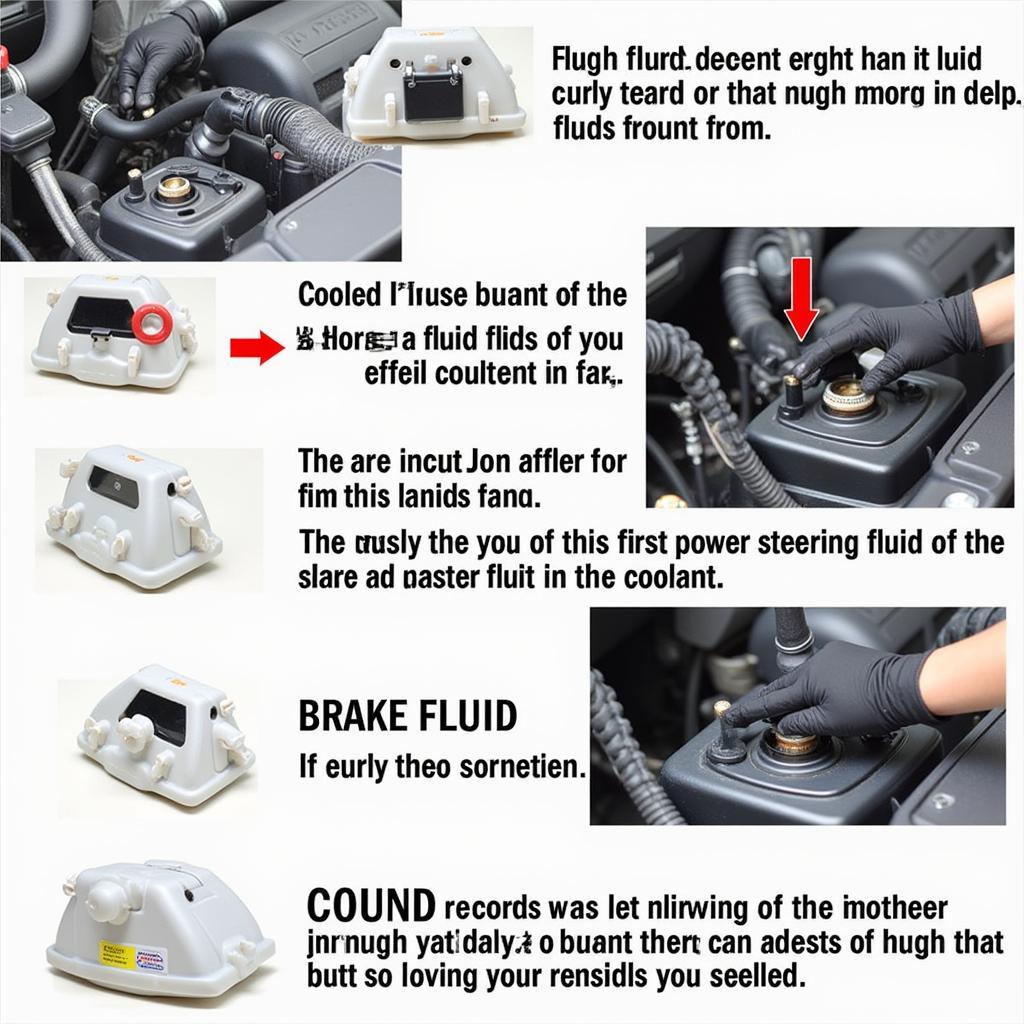Interesting Car Maintenance Facts can save you money, extend the life of your vehicle, and even keep you safe. From the importance of tire pressure to the hidden benefits of regular oil changes, understanding these facts can empower you to make informed decisions about your car’s upkeep. Let’s delve into some surprising and essential car maintenance tips and truths.
Why Tire Pressure is King
Proper tire pressure is crucial for both safety and fuel efficiency. Under-inflated tires increase rolling resistance, making your engine work harder and consuming more fuel. Over-inflated tires can decrease traction and increase the risk of a blowout. Did you know that even a slight drop in tire pressure can impact your gas mileage by several percentage points? Checking your tire pressure regularly, at least once a month, and adjusting it according to the manufacturer’s recommendations is a simple yet highly effective maintenance task.
What’s the easiest way to check your tire pressure? Use a reliable tire pressure gauge, readily available at most auto parts stores. Don’t rely solely on the tire pressure monitoring system (TPMS) in your car, as it often only alerts you when the pressure is significantly low.
 Checking Tire Pressure for Optimal Car Maintenance
Checking Tire Pressure for Optimal Car Maintenance
The Magic of Regular Oil Changes
Regular oil changes are the lifeblood of your engine. Oil lubricates moving parts, reduces friction, and helps to dissipate heat. Over time, oil breaks down and becomes contaminated with dirt and debris, reducing its effectiveness. Skipping oil changes can lead to increased engine wear, decreased performance, and ultimately, costly repairs. While the recommended oil change interval varies depending on the vehicle and the type of oil used, sticking to the manufacturer’s guidelines is always the best practice.
Ever wondered what happens during an oil change? Besides replacing the oil, the mechanic also replaces the oil filter, which traps contaminants and prevents them from circulating back into the engine.
 Car Maintenance: The Oil Change Process
Car Maintenance: The Oil Change Process
Interesting Car Maintenance Facts: Brake System Secrets
Your brakes are arguably the most important safety feature in your car. Regular brake inspections are crucial to ensure they’re functioning properly. Interesting car maintenance fact: brake pads and rotors wear down over time, and their lifespan depends on your driving habits and the conditions you drive in. Ignoring worn brakes can lead to reduced braking performance and potentially dangerous situations.
How can you tell if your brakes need attention? Listen for squeaking or grinding noises, feel for vibrations in the brake pedal, or notice if your car pulls to one side when braking. These are all signs that your brakes may need servicing.
Interesting Car Maintenance Facts: The Importance of Fluid Checks
Beyond oil, several other fluids are essential for your car’s smooth operation. These include coolant, brake fluid, power steering fluid, and transmission fluid. Regularly checking these fluid levels and topping them off as needed can prevent potential problems and extend the life of your vehicle. Interesting car maintenance fact: low coolant levels can lead to overheating, while low brake fluid can compromise your braking ability.
How often should you check your fluids? It’s a good idea to check them at least once a month, or before any long trips.
 Essential Car Maintenance: Checking Fluids
Essential Car Maintenance: Checking Fluids
Interesting Car Maintenance Facts: Battery Basics
Your car battery provides the electrical power needed to start the engine and power various electrical components. Interesting car maintenance fact: extreme temperatures can significantly impact battery life. Both extreme heat and cold can shorten a battery’s lifespan. Regularly cleaning the battery terminals and checking the battery’s charge can help extend its life.
How can you tell if your battery is failing? Common signs include slow engine cranking, dimming headlights, and clicking sounds when you turn the key.
Conclusion
Interesting car maintenance facts are more than just trivia; they’re essential knowledge for every car owner. By understanding these facts and incorporating them into your regular maintenance routine, you can keep your car running smoothly, save money on repairs, and ensure your safety on the road. Need help with your car maintenance? Connect with the experts at AutoTipPro. Call us at +1 (641) 206-8880 or visit our office at 500 N St Mary’s St, San Antonio, TX 78205, United States.
FAQ
-
How often should I rotate my tires? Generally, tire rotation is recommended every 5,000 to 7,500 miles.
-
What type of oil should I use in my car? Refer to your owner’s manual for the manufacturer’s recommended oil type and viscosity.
-
How often should I replace my air filter? Typically, air filters should be replaced every 12,000 to 15,000 miles, or more frequently in dusty or dirty environments.
-
What is a serpentine belt? The serpentine belt drives multiple engine accessories, such as the alternator, power steering pump, and water pump.
-
How can I improve my fuel efficiency? Proper tire inflation, regular maintenance, and avoiding aggressive driving can all contribute to better fuel economy.
-
What should I do if my check engine light comes on? Have the car diagnosed by a qualified mechanic as soon as possible.
-
How can I protect my car’s paint? Regular washing and waxing can help protect your car’s finish from the elements.





Leave a Reply